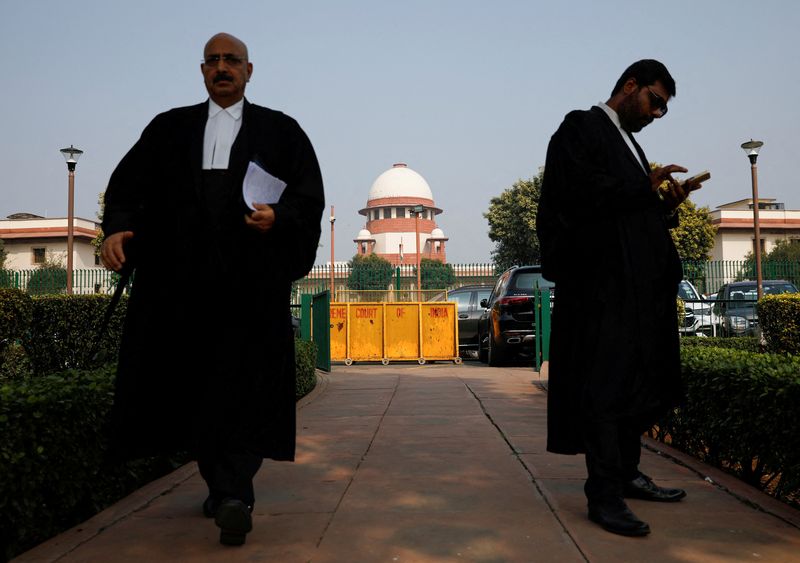By Arpan Chaturvedi
BRAND-NEW DELHI (Reuters) – Skyrocketing temperature levels in India’s capital have actually shown to be excessive for some courts and are testing a law in location because 1961 that needs legal representatives to use heavy black bathrobes and coats.
A minimum of 3 High Courts have actually allowed legal representatives to dispose of the bathrobes and coats for the summertime, although the Supreme Court is being advised to make it a basic guideline for all legal representatives in the nation.
Judges at one New Delhi court held off a case today till later on in the year, grumbling about an absence of a/c and water system.
While India’s Supreme Court and most High Courts have a/c, numerous lower courts and customer online forums depend upon fans and have bad ventilation.
New Delhi tape-recorded temperature levels of around 50 degrees Celsius (122 Fahrenheit) for the very first time today, requiring authorities to limit water system, shut schools and established heatstroke systems at medical facilities.
They have actually likewise released paramedics to ballot stations for the last day of India’s enormous basic election on Saturday in case any citizens fall ill as they queue in the heat. A 40-year-old labourer passed away of heat stroke on Wednesday.
The northwest of India has actually been experiencing heats for a number of weeks. India’s Meteorological Department has actually anticipated 2 or 3 times the normal variety of heat wave days in the area this month, or days specified by unusually heat.
For Delhi, that implies blistering temperature levels that are effecting individuals throughout the city, including its legal system.
At a customer court in the southwestern district of Dwarka, which Reuters went to on Thursday, judges commanded cases versus insurer in a courtroom fitted with 2 non-functioning a/c unit. Ceiling fans and open windows used the only break from the weather condition.
3 of the court’s judges provided a composed order today mentioning they had actually decreased to hear a case due to heats in the court space. They adjourned the case for the cooler month of November.
“There is neither ac system nor cooler in the court space … There is excessive heat. There is no water system even to go to the restroom to alleviate ourselves … In these situations, arguments cannot be heard,” the order stated.
In 2021, India’s then primary justice stated courts “still run from shabby structures without correct centers”, which was “seriously destructive” for both litigants and legal representatives.
A Delhi-based attorney, Shailendra Mani Tripathi, has actually taken the matter to the Supreme Court, asking justices to alter the years old dresscode.
Black coats take in more heat and threaten health, Tripathi states in his filing, which the justices have yet to hear.
Requiring legal representatives to use them “is neither reasonable nor affordable,” he states.
(Reporting by Arpan Chaturvedi; Modifying by Aditya Kalra and Neil Fullick)
